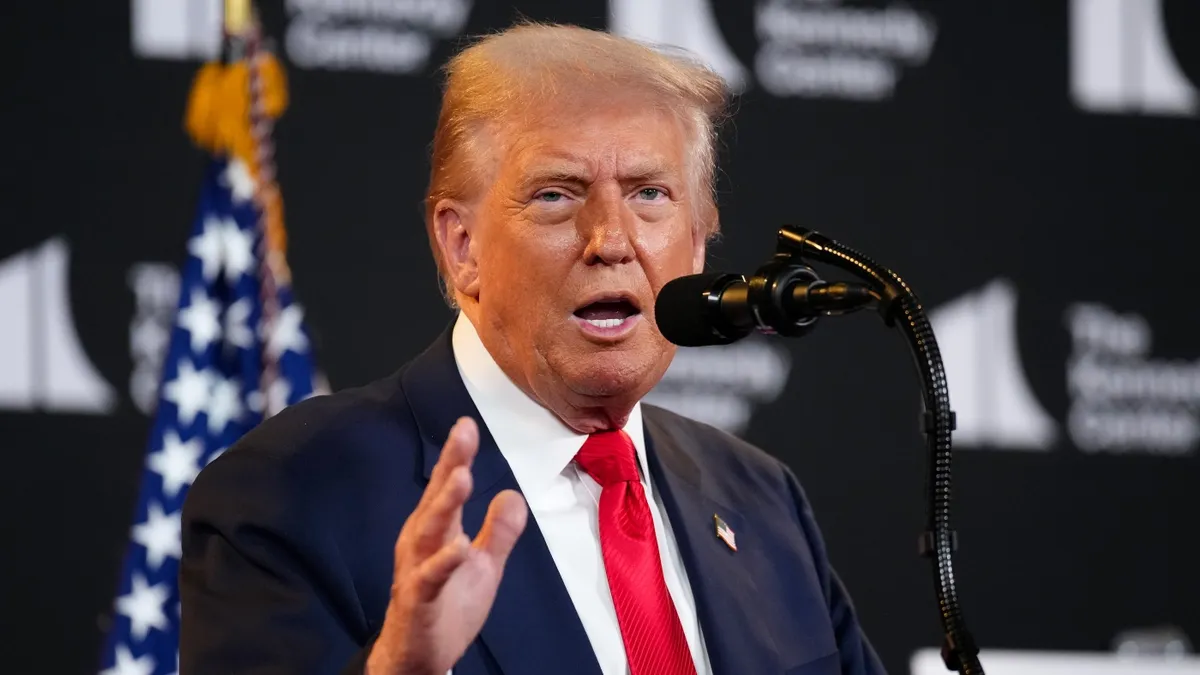
On Tuesday, President Donald Trump took to his Truth Social platform to criticize the Smithsonian Institution and other museums, branding them as the last bastions of 'WOKE' ideology. He announced that he has instructed his attorneys to initiate a review process similar to what has been applied to colleges and universities. This announcement follows the White House's recent decision to conduct an audit of the Smithsonian, raising questions about the future of other American museums.
While President Trump’s statement primarily focused on the Smithsonian, it remains unclear whether his review intends to target American museums broadly or just the Smithsonian. NPR sought clarification from the White House, and an official, who spoke anonymously, confirmed that Trump aims to explore various options to eliminate perceived 'WOKE' influences from the Smithsonian, with potential implications for other institutions down the line.
In a statement to NPR, Marilyn Jackson, the president and CEO of the American Alliance of Museums, expressed concern over the implications of federal reviews extending to the nation's 22,000 museums. Jackson emphasized that most museums operate as independent nonprofits, adhering to professional standards and community trust. She argued that subjecting museums to government reviews would undermine their integrity and independence, which are crucial for public value.
In his post, Trump appeared to specifically criticize representations of Black American history, stating that current narratives focus excessively on the negative aspects of the country’s past, including slavery. Notably, the National Museum of African American History and Culture is among the eight Smithsonian museums identified for immediate review, alongside institutions like the Air and Space Museum. Critics of the Trump administration, including Congressional representatives, have accused the President of attempting to erase Black voices and history.
Understanding the financial landscape of museums is crucial in this context. According to data from the AAM, approximately 63% of museums receive some form of federal funding, with 36% obtaining direct federal aid. However, recent budget cuts at the National Endowment for the Arts and the National Endowment for the Humanities have raised concerns about the future of funding for many institutions. The AAM is currently surveying its members to assess the impact of these cuts, but results are yet to be disclosed.
At the local level, about 20% of U.S. museums are government-operated, with funding coming from various sources, including federal, state, and municipal levels. Experts have voiced concerns that local government officials might leverage financial power to align museums with Trump's ideological vision. Furthermore, museum leaders worry about potential pressures from major donors to modify exhibitions to align with current political narratives.
While Trump has indicated plans to audit museums akin to the scrutiny faced by universities, experts question the legal foundation for such actions. Patty Gerstenblith, a law professor at DePaul College of Law, highlighted the First Amendment rights of museums, noting that artistic expression is protected under free speech. Although the government cannot directly prohibit museum content, funding can be influenced, raising complex issues regarding viewpoint discrimination.
The Supreme Court's landmark case in National Endowment for the Arts v. Finley (1998) addressed whether the government could regulate art funded by taxpayer dollars. In that instance, the Court upheld a decency standard imposed on appropriated funds, indicating that government funding does come with certain strings attached. Experts fear that current pressures could create a chilling effect across the museum sector, undermining the freedom of thought and expression essential to American values.
President Trump, now serving as the chair of the Kennedy Center in Washington, D.C., appears intent on shaping how American culture and history are presented, particularly in the nation’s capital. However, the relationship between the Kennedy Center and the Smithsonian remains unclear. As this situation develops, it will be crucial to monitor how these proposed reviews affect the broader museum landscape and the narratives they present to the public.
For more updates on this evolving story, stay tuned to NPR and other trusted news sources.